PrestaShop WhatsApp Business Order Notifications: Notify or alert your customers of time-sensitive information, such...
The 8 Best Ecommerce Platforms for Print on Demand in 2023
Choosing the right ecommerce system for your print on demand business can mean the difference between a thriving enterprise and struggling to keep up with competitors.
It's about finding the right mix of print-on-demand compatibility, cost-effectiveness, ease of use and other criteria!
So, which platform will work best for you? Let's dive in and explore!
How to choose the right e-commerce platform?
Choosing the right eCommerce platform can be daunting when you feel like another one is about to emerge.
With so many options, how do you know which one best suits your needs?
Well, the selection process becomes much easier if you consider a few key factors:
Easy to use? Can you easily run your online store without a computer science degree? Shopify and Etsy are known for their intuitive interfaces.
Ease of use of the platform
• Customization. Can you design your store according to the aesthetic and functional needs of your brand? WooCommerce offers options
Excellent customization.
• Pricing. What is your budget? Compare the costs of different platforms, including subscription fees, transaction fees, and any additional fees. Etsy and Sellfy have competitive pricing plans.
• Integrations. Does the platform integrate seamlessly with tools and services you already use or plan to use, such as payment gateways, shipping providers, or marketing apps? Most platforms, such as Shopify and WooCommerce, offer
Various integrations.
• Scalability. Can the platform grow with your business? As your store gains traction, you'll need a platform to handle increased traffic and sales volume. Shopify and BigCommerce are known for their scalability.
• the support. How reliable is the platform's customer support? You'll need a platform with support that is responsive and helpful when issues arise. Shopify and BigCommerce offer excellent customer service.
Best Ecommerce Platforms for Print on Demand
If you're looking for in-depth reviews on the best ecommerce platforms for print on demand, you'll find them here
These reviews will explain why we previously chose e-commerce platforms the way we did.
Below is a ranked overview of our top e-commerce platform recommendations
1. Shopify Review
Shopify is known for its excellent balance between simplicity and powerful features
Provides strong integration with print-on-demand services such as Printful and
Printify and an extensive application market.
The user interface is intuitive and well-designed, making navigation easy for beginners. A comprehensive dashboard provides insights into sales, orders and traffic, enabling businesses to make informed decisions.
Although advanced reporting features are only available on the higher pricing plans, and some themes may seem expensive, Shopify's overall offering positions it as an excellent option for businesses of all sizes.
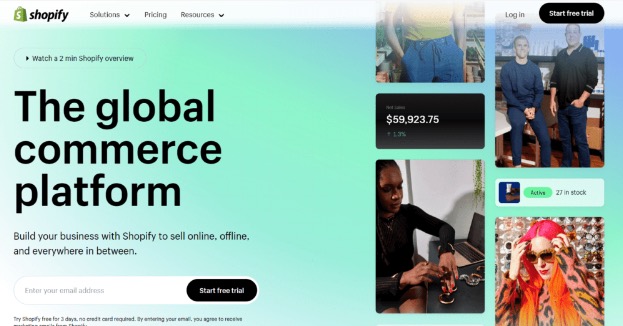
Positives
• Easy to set up with an easy-to-use interface. It's a great experience from the start.
• Excellent integration capabilities with various on-demand printing services. Almost every POD vendor works well with Shopify.
• Powerful SEO features to improve online visibility. Although it is not open source, it is generous in what you can do with optimizers
search engines.
Negatives
• Charges transaction fees unless you use Shopify Payments. The plans are also more expensive than the average e-commerce platform.
• Some key features, such as more comprehensive analytics, are only available
With the more expensive plans. Depending on your needs, a Shopify subscription can be expensive.
the prices
Plans range from $39 per month for Basic Shopify, $105 per month for Shopify, and $399 per month for Advanced Shopify.
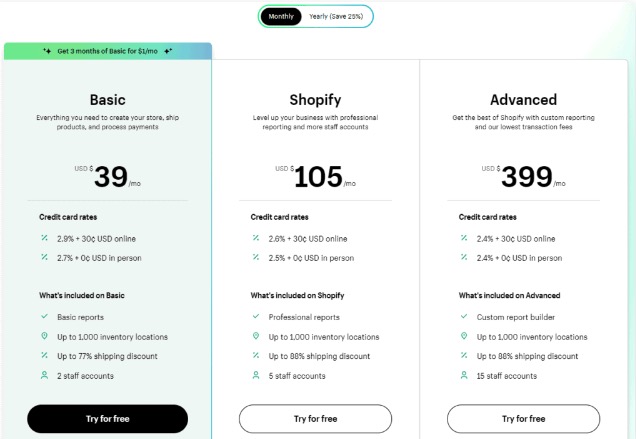
2. Etsy review
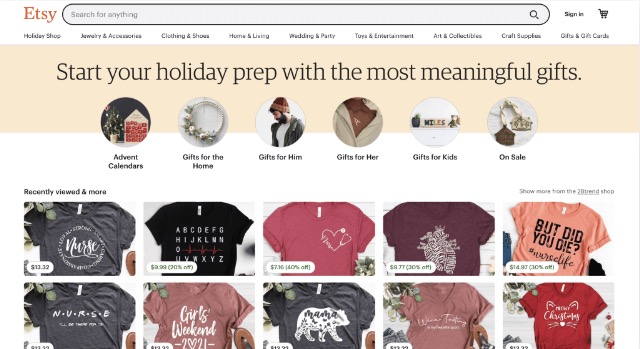
Etsy is a premium shop serving those who love handmade, vintage, and one-of-a-kind goods.
It is a platform that not only values handcrafts but actively encourages them, nurturing a community that values craftsmanship and the uniqueness of handcrafted goods.
What makes Etsy even more convenient is the easy integration with many print-on-demand services, which makes managing their business easy for sellers!
One of the best features of Etsy is
Its built-in customer base. These clients are passionate about supporting independent artists and small businesses.
They come to Etsy looking for unique items they can't find anywhere else and tend to appreciate handmade goods more.
But it's important to remember that Etsy's unique focus may not be for every print-on-demand owner.
Styles that feature more hand-designing generally fit better and get more feedback
Results because that's what the average Etsy visitor is looking for!
Positives
• Reach a large, established audience. Etsy has a lot of site traffic, so you don't have to market as much as a standalone website.
• Supports a variety of product types, including print on demand. It allows for easy integration of more than print on demand as well.
• Easy to prepare and use. maybe
Get your store up and running within minutes.
Negatives
• Listing and transaction fees apply. It's not a free-to-use platform like other marketplace-style websites.
• Less control and customization than a standalone e-commerce platform. It can be difficult to stand out as a brand from other Etsy shops.
the prices
Listing a product costs $0.20, and there is a 5% transaction fee on the selling price (including shipping).
3. WooCommerce Review
WooCommerce is a powerful, open source e-commerce platform built specifically for WordPress, allowing businesses to turn their website into a fully functional online store.
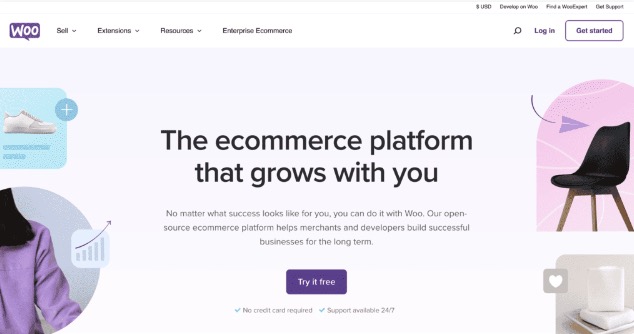
With its seamless integration with various print-on-demand services, it simplifies operations for businesses that rely on these services.
As an open source platform, Woocommerce boasts an unparalleled level of customization.
This flexibility allows businesses to design their online stores to perfectly align with their brand image.
WooCommerce has a lot of different plugins to choose from!
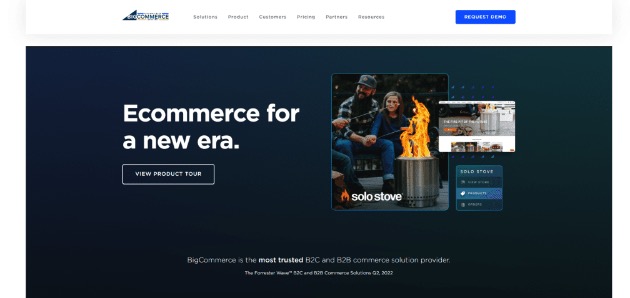
From choosing a theme and adding product categories to adjusting every detail of the checkout process, WooCommerce puts a high level of control in the user's hands.
This level of customization may require a certain degree of technical understanding.
WooCommerce is a powerful e-commerce solution for businesses running on WordPress that provides both...
Diversity and scalability.
Positives
• Highly customizable. With access to numerous WordPress plugins and more released every week, you always have something to work with.
• Strong search engine optimization capabilities. WordPress integration allows for complete control so you can freely implement any SEO strategy.
• No restrictions. WordPress is open source, and you are limited by your imagination and your hosting provider.
cons
• Requires a level of technical knowledge. You're on your own, so creating and maintaining a website can be difficult if you're not prepared.
• Some basic plugins may come at an additional cost. Something to keep in mind if you're on a budget.
the prices
The core WooCommerce plugin is free, but you...
Expect costs for web hosting, premium themes, and some plugins. Some of these fees are also subscription fees.
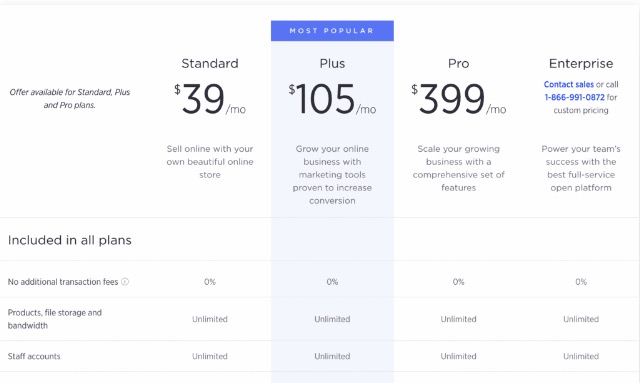
4. BigCommerce Review
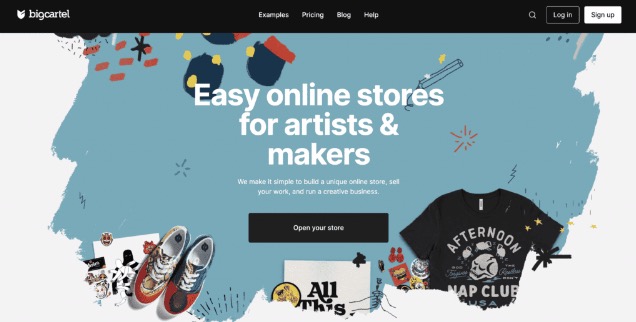
BigCommerce stands out as a software as a service (SaaS) e-commerce platform known for its wide range of built-in features and scalability.
It's an excellent choice for POD companies looking to grow, thanks to its integration
Powerful with diverse print on demand services.
The platform supports growth and expansion, making it an attractive option for companies with ambitious expansion plans.
BigCommerce's extensive built-in features mean businesses can operate efficiently without adding numerous third-party integrations or apps.
This simplifies the process and creates a more streamlined and efficient business setup.
It should be noted that
BigCommerce may seem complicated to those new to e-commerce because of its advanced features.
However, BigCommerce offers a comprehensive, scalable solution for businesses planning significant growth that can adapt to evolving business needs.
Positives
• Powerful features ready to use. The follow-up time to set up your website will take minutes!
• Excellent business scalability
Growing business. Many great tools can help you scale as you grow your POD store.
• There are no transaction fees. You only pay a subscription fee to use BigCommerce.
cons
• BigCommerce website themes are limited. It lacks the amount of customization like the competition.
• Less intuitive than other platforms. Although there are features
Great, but it's not as powerful in the number of plugins as other e-commerce platforms.
the prices
BigCommerce offers a Standard plan at $39 per month, as well as a $105 per month, Pro plan at $399 per month.
5. Big Cartel review
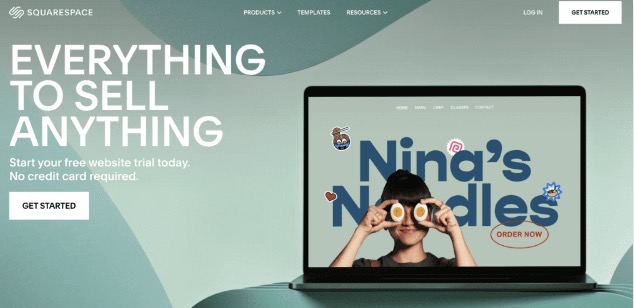
Big Cartel stands out in e-commerce as a platform specifically designed for artists and makers, making it an ideal choice for small-scale print on demand.
Its easy-to-use interface and streamlined features make it an excellent starting point for individuals or businesses new to online sales.
Although it may lack some of the advanced features of its competitors, it covers the basics effectively, allowing
It allows new companies to start operating.
By focusing on the needs of artists and makers, Big Cartel has carved out a unique niche for itself. The platform provides the tools to quickly set up an online store, manage inventory, and process orders.
For those who are starting their e-commerce journey and need a simple platform to showcase products, Big Cartel offers a solution
Uncomplicated. Although advanced or large-scale operations may require a platform with more features.
Positives
• Reasonable prices for small businesses. Big Cartel pricing is based on product range, with a generous free tier.
• Straightforward setup process. It will only take minutes to start selling.
• Focuses on artists and makers. While other dropshipping companies may struggle with this target market,
They are great for print on demand designers.
cons
• Limited features compared to other platforms. Themes and plugins are very small and cannot be easily customized.
• Not ideal for large or fast-growing companies. As they continue to expand, their top offerings may be too limited to what you're looking for compared to the competition.
the prices
Big Cartel has a free plan for up to five products; Paid plans start at $9.99 per month.
6. Squarespace review
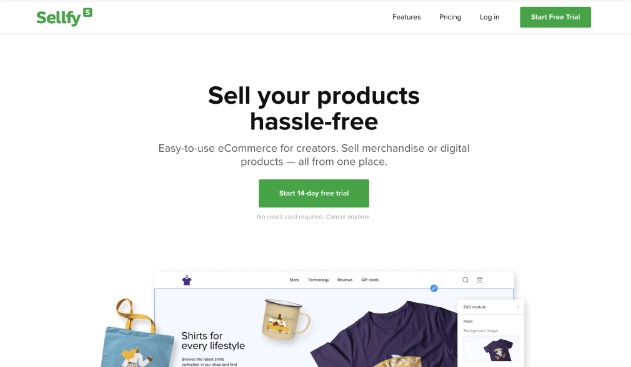
Squarespace is well-regarded for its visually stunning and professional-looking templates, making it a great platform
Excellent for businesses where aesthetic appeal is crucial.
This feature mainly benefits small print on demand businesses that want to effectively showcase their unique designs and create a strong brand image.
Squarespace ensures that your online store looks great and offers the essential features to run an e-commerce business effectively. Its easy-to-use interface makes it easy to set up a store, manage inventory, and process orders
It's easy.
However, it may not offer as many advanced e-commerce features as some competitors. However, its focus on design and user experience makes it a solid choice for businesses that prioritize aesthetics and ease of use.
It's worth considering Squarespace if you're aiming to create a visually stunning online presence to showcase your print on demand.
Positives
• High-quality, customizable templates. Lots of variety, and all free to use.
• Comprehensive built-in features. It's well integrated and requires minimal setup.
• Provides good inventory management and analysis tools. Most other platforms command a high price for the quality of their analytical tools.
cons
• There is no app store to expand functionality. Everything is made by Squarespace and its partners.
• E-commerce requires the highest level of payment.
• Print-on-demand integration is possible but not as seamless as some competitors. Other platforms have a higher priority in integrating POD into their platforms.
the prices
Squarespace offers a business plan
At $16 per month, Basic Trade at $27 per month, and Advanced Trade at $49 per month.
7. Sellfy Review

Sellfy is a complete e-commerce platform designed for creatives to sell digital products, physical goods, and subscriptions, all from one place.
For POD businesses, Sellfy provides
Easily launch a store in minutes without any technical knowledge.
The platform makes it easy to manage products, track sales, and interact with customers, with a focus on delivering a streamlined, user-friendly experience.
It's important to know that while Sellfy covers the basics of ecommerce well, it may lack some advanced features that larger, more established platforms offer.
Positives
• Easy-to-use interface. Simplifies the process of creating a store and selling products.
• Selling digital and physical products. Allows for a variety of product offerings.
• Built-in marketing tools. These help increase customer engagement and sales.
cons
• Limited customization options. The design capabilities are not as extensive as some other platforms.
• Fewer advanced features.
Compared to some competitors, Sellfy's features can be basic.
• POD integration is not robust. While it is possible, it is not as seamless as with other platforms.
the prices
Sellfy offers a Starter plan at $19 per month, Business at $49 per month, and Premium at $99 per month.
8. Redbubble Review
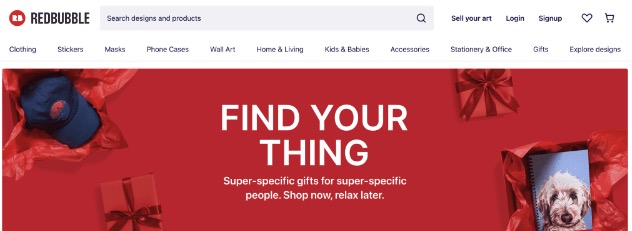
Redbubble is a global online marketplace offering custom printed products based on user submitted artwork.
Artists can sell their artwork as decoration on various products without worrying about production, shipping, or customer service, which Redbubble handles.
Redbubble's strength lies in its community
Huge pool of artists and clients, which can be a boon for new artists trying to reach an audience.
But because it is a marketplace, sellers have limited control over branding and customer experience.
Positives
• easy to use. Artists upload their artwork and select the products they want to sell.
• Redbubble handles production
And shipping. Artists can focus on their designs and marketing.
• Reach a large built-in audience. Redbubble's community of artists and customers can boost visibility.
cons
• Limited control over brands and customer experience. Redbubble's marketplace format gives less power to sellers.
• Competition is high. With so many artists on the platform, standing out can be difficult.
• Profit margins are generally lower. Redbubble sets the base price for products, and artists only set their margin.
the prices
There is no cost to open a store on Redbubble. Artists set their profit margin above Redbubble's base price for each product.
What is an e-commerce platform?
An e-commerce platform is a software technology that helps you create a website
Web for selling products or services over the Internet. Many are SaaS (software as a service), software hosted by a third party and delivered to customers over the Internet.
Your e-commerce platform will be the backbone of your online store, providing you with every tool you need to seamlessly build, market, manage and display your print on demand.
It will help you create the interface of your business and
Your back office, integrating parts such as ordering, product, and customer management into each concept.
If you consider an e-commerce platform to be your “business partner,” you will understand the importance of choosing the best platform for your store.

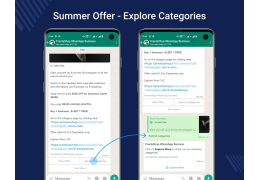

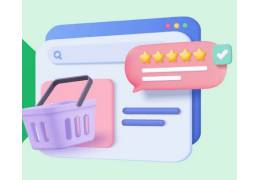
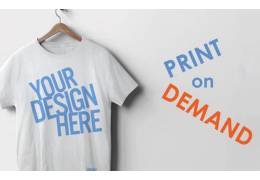


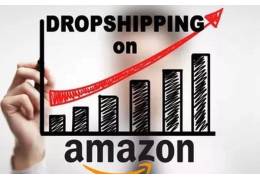
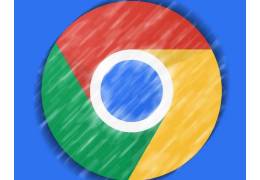
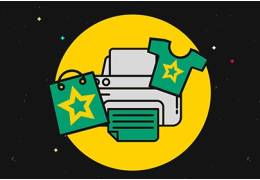



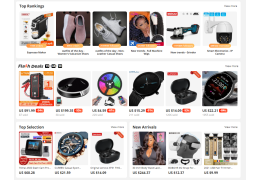

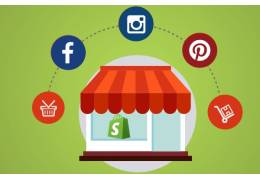

Leave a comment